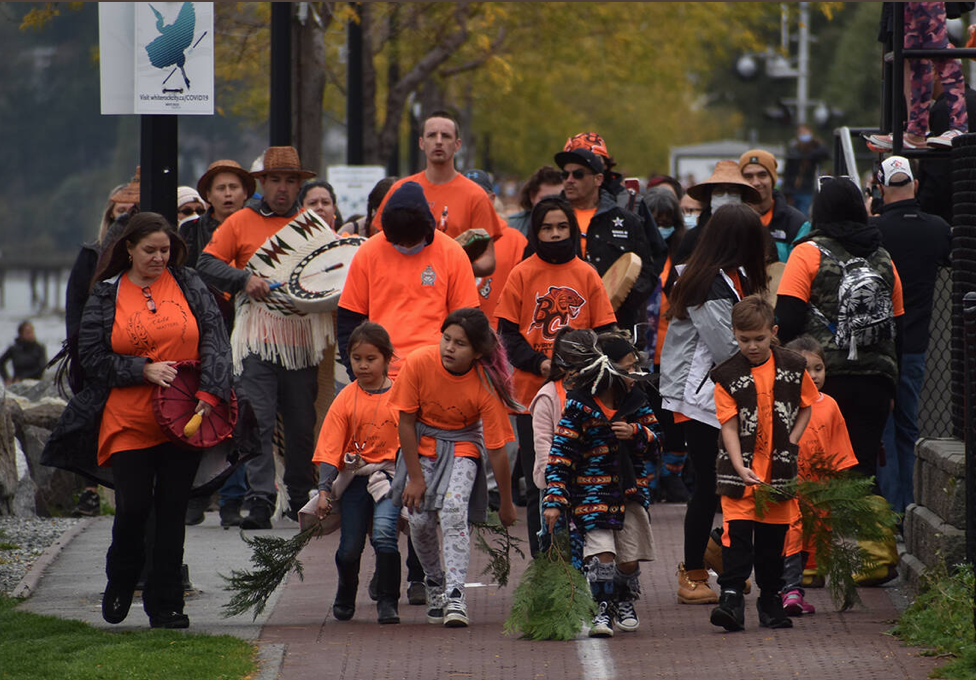Where do we go from here, together? We go the way of Hesed Love.

Photo: Aaron Hinks, 30 Oct 2021
Truth and Reconciliation Commission of Canada: Calls to Action
Ruth could have stayed behind in Moab, like Naomi’s other daughter-in-law. Naomi herself bid her daughter-in-laws to take care of their own wellbeing and return home to their people. There was nothing wrong with staying in Moab: it made sense. Yet Ruth, and later Boaz, chose a course of action that went deeper than self-interest. Their actions were grounded in “Hesed”.
Hesed (???, pronounced kheh-sed”) is a difficult word to translate into English. There’s no word that quite gets it, which is why translators often string words together like “steadfast love” or “lovingkindness” Hesed is not content with a feeling. Hesed is active. Hesed compels one to act on behalf of the wellbeing of a loved one and come to their aid.
The story of Ruth and Boaz shows how amidst great hardship—famine, death, dislocation—God’s purposes are woven into human history as ordinary people made choices to love with active, empathetic, generous, compassionate, courageous Hesed love.
This Thursday, our nation paused for a day to remember the lives of the children who died in residential schools. Self-interest, void of Hesed, drove the settlers to separate indigenous children from families. Self-interest, void of Hesed, drove colonial powers to steal indigenous lands. The elevation of individual self-interest above the well-being of the whole, the freedom and right to “do what I want, for my own benefit, regardless of how it might affect others”, is still a dominant colonialist value shaping our world with dark and dire consequences.
An indigenous worldview places the individual within the greater web of interconnected life: to look out for oneself is to look out for the wider community and creation, and to look out for community and creation is to look out for oneself. The wellbeing of all, held by all, in Hesed Love.
On Sunday we concluded our conversation around the question, “Where do we go from here, together?” Those of you who chose to participate in these discussions have explored the longings, needs, and desires of those within our community, according to their different ages and stages of life. Together we have also explored solutions that take into account not just our personal preferences, but the wellbeing of our whole community, seeking how to care for and serve one another. It was an exercise in Hesed.
In the months to come we will be introducing changes to the way we do things based on these conversations. However, the power of these conversations was not just in the outcome. The power was in the exercise itself: the strengthening of the muscle of Hesed as we learn to consider the needs of one another: learning to think with a tribal heart, rather than an individualist heart.
Deep peace and blessings.
—Anne
Rev. Anne Baxter Smith
Pastor of Church at Southpoint
What does the Lord require of you
but to do justice, and
to love kindness [hesed],
to walk humbly with your God?
– Micah 6: 8

No comments